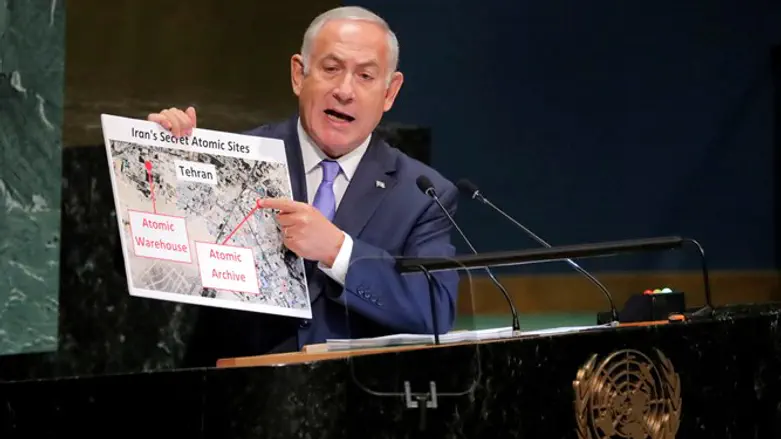
The United Nations' nuclear watchdog said on Monday it had detected uranium particles at an undeclared site in Iran.
The latest report from the International Atomic Energy Agency (IAEA) on Iran’s nuclear program, seen by AFP, says, "The agency detected natural uranium particles of anthropogenic origin at a location in Iran not declared to the agency."
The particles are understood to be the product of uranium which has been mined and undergone initial processing, but not enriched.
The IAEA added that it was "essential for Iran to continue interactions with the agency to resolve the matter as soon as possible."
The IAEA has not named the site in question, though sources say it is located in the Turquzabad district of Tehran. It is believed to be the site that was identified by Prime Minister Binyamin Netanyahu during his address before the UN General Assembly last year.
Reports in April indicated that the IAEA had inspected the secret atomic warehouse. Subsequent reports said the facility was found to contain traces of uranium.
Monday's report also confirms that Iran has ramped up uranium enrichment, with its stockpile now reaching the equivalent of 551 kilograms, as opposed to the 300-kilogramme limit laid down in Iran's 2015 deal with world powers.
A Vienna-based diplomat said the rate of production of enriched uranium had gone up substantially to more than 100 kilograms a month, and could increase further.
The report also confirms that Iran is now enriching uranium at its Fordow facility, as was announced by Iran last week.
Blue and White chairman Benny Gantz said in response to the IAEA report, "The revelation requires world countries to tighten economic sanctions on Tehran."
"A sharp and clear message must be conveyed to the Iranian leadership - violating the agreements will have a very heavy economic price, and not only that. Israel will continue to remain united around the ultimate mission, which is to prevent Iran from carrying nuclear weapons that would endanger the entire region and harm its stability,” added Gantz.
Iran’s moves are part of its efforts to scale back its compliance with the 2015 deal in response to US President Donald Trump’s withdrawal from the agreement last May.
